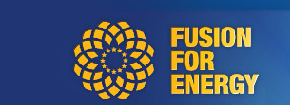OTROS PROGRAMAS INTERNACIONALES Y FUNDACIONES PRIVADAS
| Resumen | A foundation that Funds and directs scientific research and educational initiatives for waste management practices to benefit industry participants and the communities they serve. |
|---|---|
| Objetivo |
The objective of this foundation is to finance projects relating to environmental engineering, management, and education in the areas of waste minimization, recycling, waste conversion, landfills, etc. |
| Modalidad | Project funding ranges from US$15.000-500.000.
There are two annual pre-proposal deadlines on January 6 and July 1. Selected applicants from the pre-proposal phase will be invited to submit full proposals. |
| Link | http://erefdn.org/index.php/grants/proposal |
| Resumen | Mathematical, physical, and biological sciences |
|---|---|
| Objetivo |
The mission of the Simons Foundation is to advance the frontiers of mathematics and basic sciences. The foundation funds high-risk basic research in mathematics and physical sciences, life sciences, autism, and education and outreach. |
| Modalidad |
There are a variety of open calls for proposals throughout the year. Here are some examples: Targeted Grants in Mathematics and Physical Sciences Targeted Grants to Institutes for Mathematics and Physical Sciences Autism Research Initiative |
| Link | https://www.simonsfoundation.org/ |
| Resumen | The mission of the foundation is to improve worldwide engineering education and practice through information technology and the recruitment of women. |
|---|---|
| Objetivo |
The EIF funds work on communication in engineering, women in engineering, and developing countries. It has deadlines in February and August of each year. |
| Modalidad |
• Enhancing Communication and Use of Information in Engineering • Women in Engineering: Directed by Engineering Educators • Developing Countries |
| Link | http://www.eifgrants.org/info/apply.html |
| Resumen | Google is seeking long-term faculty relations to impact how future generations will use technology. |
|---|---|
| Objetivo | Google is interested in proposals about natural language processing, linguistics, software development, and many other fields.
Their foundation generally has 2-3 deadlines per year for each program. |
| Modalidad | • Global Faculty Research Awards
• Earth Engine Awards (remote sensing) •Others |
| Link | http://research.google.com/research-outreach.html#/research-outreach/faculty-engagement |
Más información: proyectoseuropeos@ehu.eus

